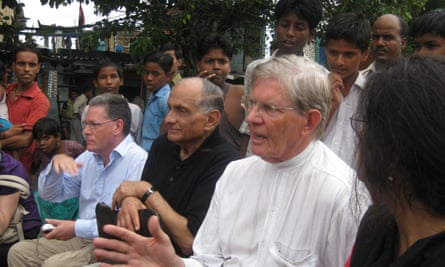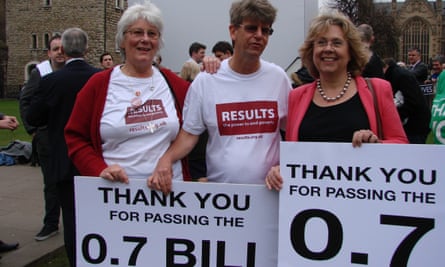You could argue that some of the most important changes in the world, such as the end of the slave trade or votes for women, were achieved through advocacy. Knowing how to do it well is crucial for people who want to shape our world for the better.
When advocacy works well it can be transformative. For example, in 2009 anti-poverty campaigners Results UK took veteran Conservative MP Bill Cash to India to meet slum-dwelling women. He has spoken about how this experience led him to introduce the International Development (Gender Equality) Act as a private member’s bill. The act, which was passed in 2014 with the help of many advocates and campaigners, made a commitment to ensure that gender equality was made a legal obligation in UK aid spending.
As an advocate for Results UK and Sense International I have found that successful advocacy requires the following elements:
Clear and simple messages
The messages of a campaign need to resonate with the audience, be they policymakers, the public, or both. Make sure the message is easily communicated and understood. The change that you want to see happen needs to be clear and achievable so the audience believes they can make a difference.

Passion and credibility
It is important to have evidence to demonstrate the difference the change will make in people’s lives, so do your research. Passion without evidence is rarely effective; conversely, evidence alone is insufficient. You need both.
Hear from people who are affected
People who are directly affected by the issue you’re working on – such as poverty, malnutrition, disability, or diseases such as polio or tuberculosis – can be the best advocates for an issue. When parliamentarians and other decision-makers meet a person who can talk about something they themselves have faced, they are much more likely to listen and feel compelled to act.
Focus on issues rather than an organisational brand
Advocacy that concentrates on the results you want to achieve is more likely to be persuasive when it’s not mixed in with efforts to build the brand of an organisation.
Work in coalition
Working with other organisations will make the message stronger. Decision-makers want to hear a loud, clear, and coherent message from all concerned organisations. If a coalition is broad and includes NGOs, academics and others that are all saying the same thing, government is much more likely to listen.

One effective coalition I have been part of is the Bond Disability and Development Group which brings together NGOs who work on disability and development and aims to ensure that UK development aid is disability-inclusive. The group submitted evidence to the international development select committee’s inquiry on disability and development and developed a strong relationship with the Department for International Development (DfID) disability team, working closely with them on the development of a disability framework. The framework was a major step forward in DfID’s work on the issue.
As an advocate you can often feel overwhelmed by how much needs to be done to make the world a better place. You are more likely to make a difference if you concentrate on the issues that you are passionate and knowledgeable about and use the techniques I have described above. Successful advocacy is about learning from others and collaboration. It is a constantly evolving process, moving with the changing political situation.
Lucy Drescher is head of parliamentary advocacy at Results UK.
Join our community of development professionals and humanitarians. Follow @GuardianGDP on Twitter.

Comments (…)
Sign in or create your Guardian account to join the discussion